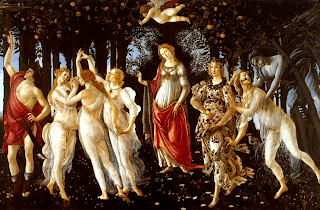- The question virtue ethics try to answer is: "How should I live?". The answer is: "Flourish by cultivating your virtues!". But what is a virtue? Is it a feature of our character? Is it a disposition to act in a certain way in determinate situations? Is it something more complex?
- How can one cultivate \ educate his or her virtues?
- What is the relation between virtues and emotions? Can we educate our emotions? How can we get our emotions in harmony with our rational recognition of certain reasons for acting so and so in a given situation?
- How can we motivate that certain behaviour and emotions are appropriate in a certain context rather than in others?
- What is the role of the environment in one's attempt to "flourish"? How much do your circumstances (e.g. where you live, your family, your friends, your education, the time when you live etc) affect the posibility of your "flourishing"?
- Do virtues change over time and across cultures? If so, would this undermine virtue ethics? Can we identify universal virtues?
- Being willing to have lots of sexual partners may be regarded as a virtue (e.g. an example of openness) but also as a vice (say, lust) at the same time. Is there a principled way to argue that a certain character is intrinsically virtuous (or vicious)? Are we condemned to relativism?
- Benevolence, Courage, Chastity, Wisdom, Honesty can be considered as examples of virtues. Drunkenness, Caprice, Egoism, Laziness, Lust, Stupidity, Dishonesty as examples of vices. For which reasons are they considered virtues and vices? Is there any particular virtue indispensable for the pursuit of happiness?
- Consider Mandeville's poem. Is vice necessary for a wealthy, and happy society?
- Do virtues presuppose a certain moral view?
Specifically on Anscombe's "Modern Moral Philosophy"
- "Modern Moral Philosophy” argues that virtues are the central concepts needed by moral thought. Do you agree? What is Anscombe’s main reason in support of her claim?
- Do we need a philosophy of psychology to do moral philosophy? Does our psychology need a concept such as duty? How can psychology help us to explain how an unjust man is a bad man?
- For Anscombe Mill is “stupid”, Sidgwick, “vulgar”, Butler “ignorant”, Hume “sophistical”, Kant “absurd”, and the proponent of “hideous fantasy”, while even her beloved Aristotle is sometimes reduced to “babble”. Consider her criticism to Kant. Do you find it convincing? Why?
- Is the notion “morally ought” meaningless, and even "harmful" without a (divine) “law”? When Anscombe says “where one does not think there is a judge or a law, the notion of a verdict may retain its psychological effect, but not its meaning”, is she claiming (with dostoevskij) that if God is dead everything is permitted?
- Mary Geach (Anscombe's daughter) says: "Anscombe wanted people who did not believe in God to stop asking questions like “Is this morally right?”, and to start asking questions like “Is this gluttonous?” or “Is this that kind of injustice which is called murder?”" How does that make difference?
- According to Anscombe, certain things are forbidden, whatever the consequences. Is a notion of duty necessary to justify this claim? And do you agree that certain things are forbidden simpliciter?
- Are there things that the virtuous person simply will not contemplate—he will not even talk about them?
- Regarding this last question, Anscombe's favourite example is procuring the judicial execution of the innocent. She writes (p.17) "But if someone really thinks, in advance, that it is open to question whether such an action as procuring the judicial execution of the innocent should be quite excluded from consideration-I do not want to argue with him; he shows a corrupt mind". Should we argue with "corrupted minds"???


